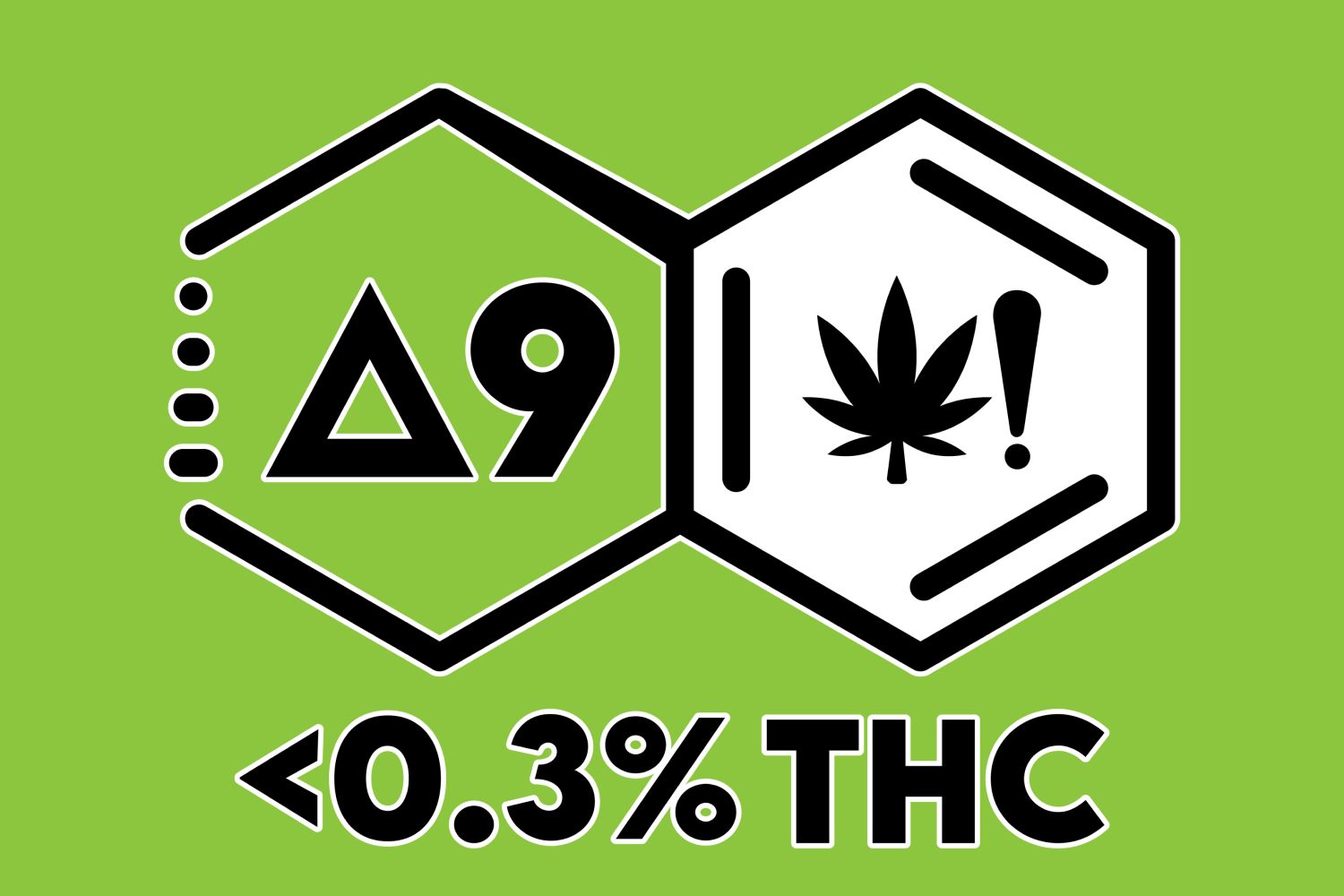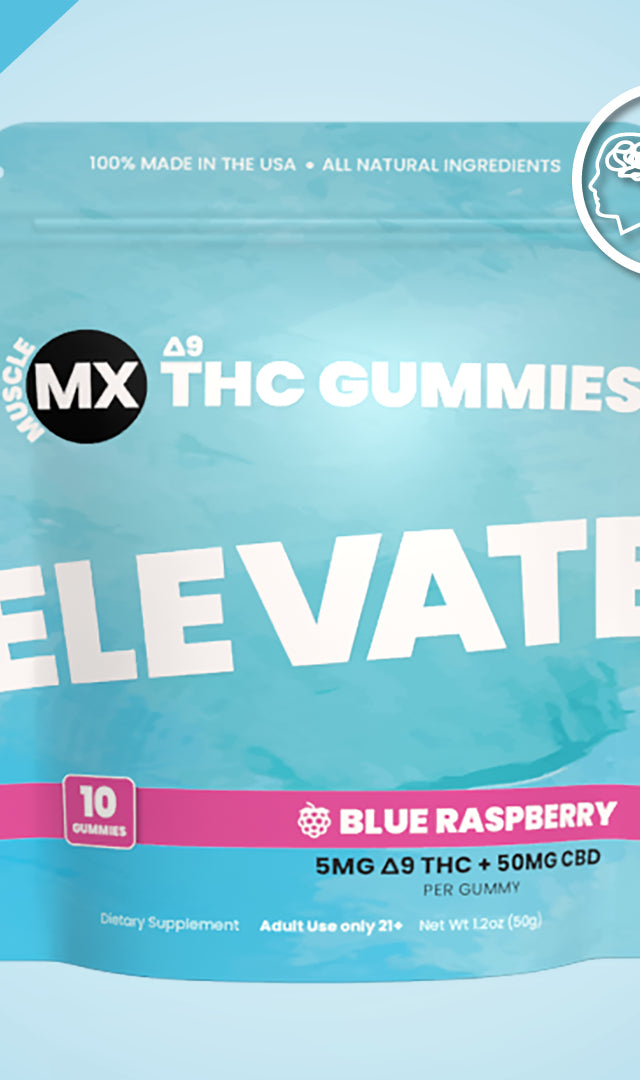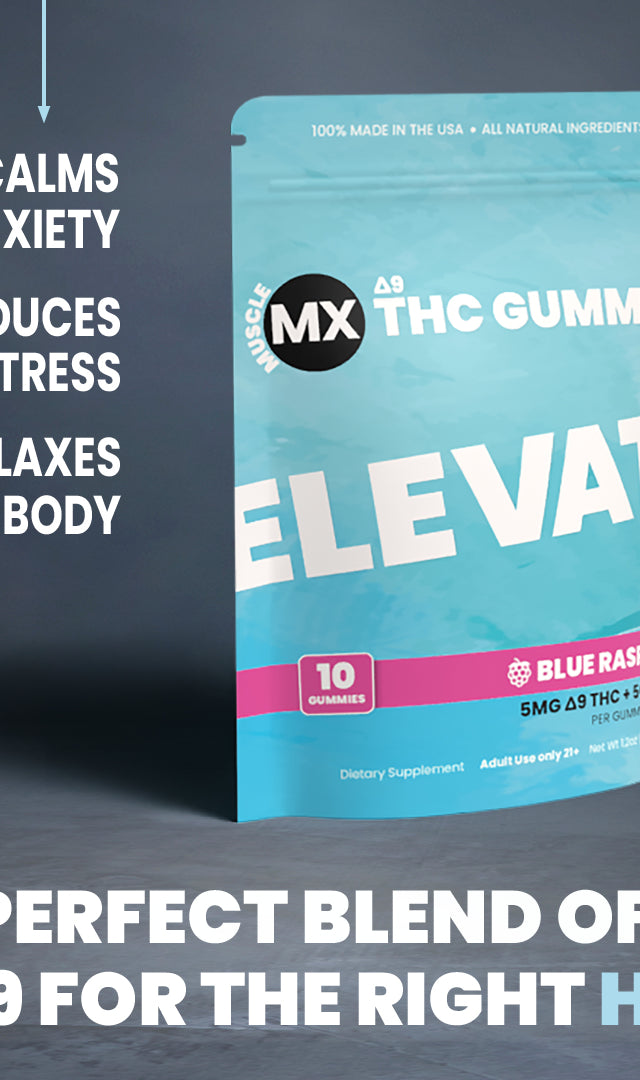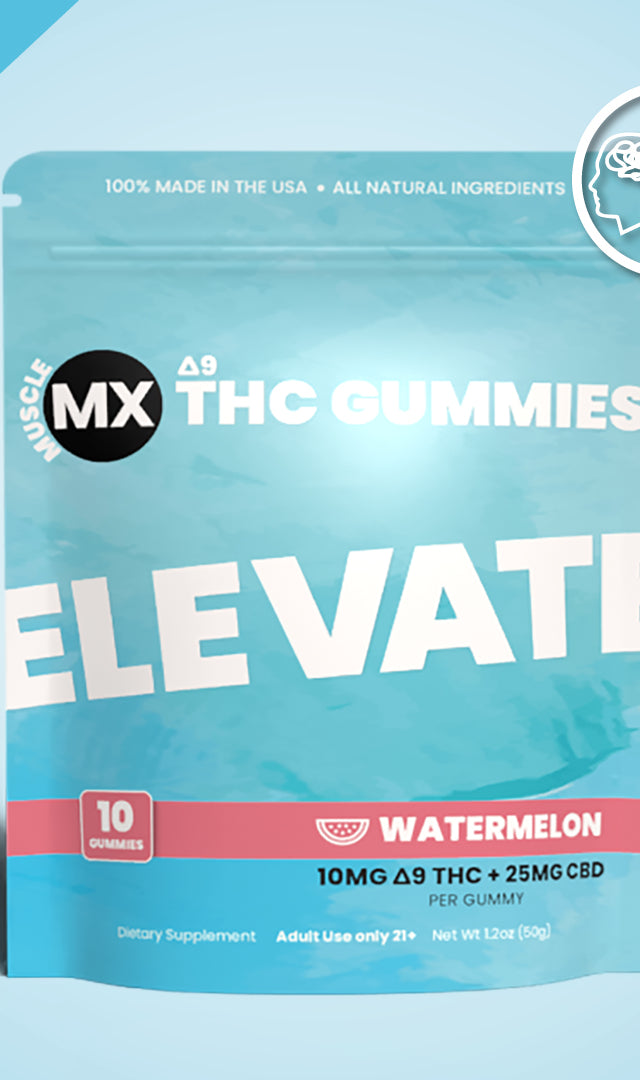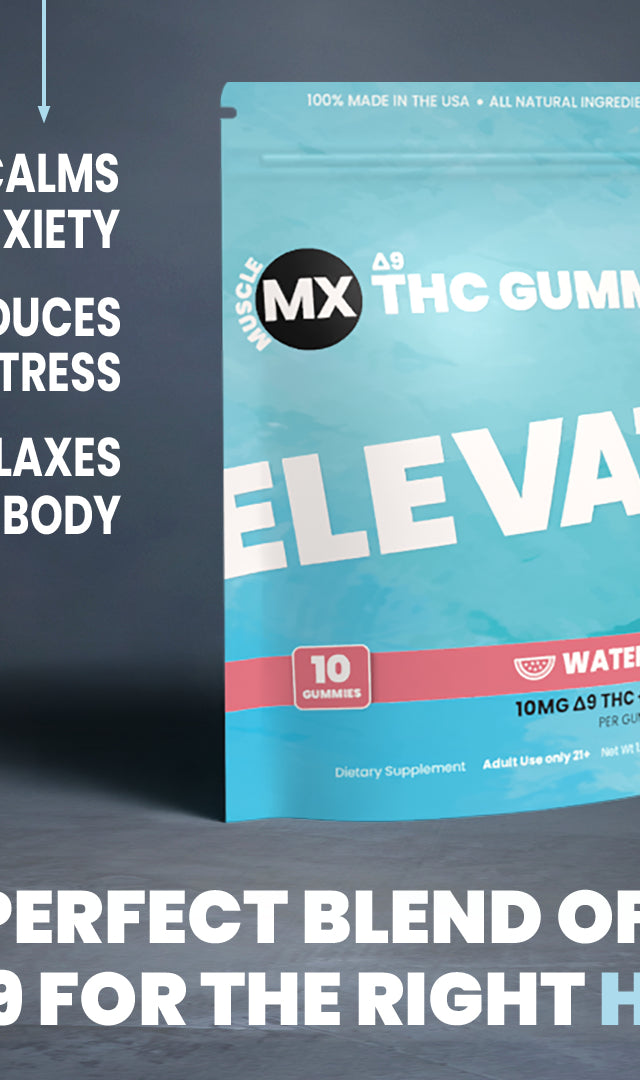What Is Delta 9 and Is It Safe?
Delta-9, or delta-9-tetrahydrocannabinol, is a compound rich in benefits and steeped in a complex history within the cannabis world. With its significant role in both therapeutic uses and recreational appeal, you might find yourself asking — is delta-9 actually safe? The good news is that, when taken as directed, delta-9 can safely support a balanced well-being.
But everyone’s body responds differently, so it’s important to ease into your exploration of delta-9 with the information you need to make safe and informed choices. We're here to guide you through the intricacies of this well-known cannabinoid.
Let’s talk about its nature, examine its chemical composition, and explore how it interacts with the human body.
What Is Delta-9?
Delta-9, or delta-9-tetrahydrocannabinol, is the main psychoactive cannabinoid in cannabis. Chemically, this form of THC is a carbon compound with a specific arrangement that influences how it interacts with the human body.
Within the Cannabis sativa plant, delta-9 is found primarily in the resin secreted by the glands of the cannabis plant, with higher concentrations in the flowering portions of the plant.
Delta-9 plays an important role in the effects associated with cannabis use, contributing to both its therapeutic uses and recreational appeal. This cannabinoid's history is intertwined with the cultural, medicinal, and legal narratives of cannabis, reflecting its complex and multifaceted role.
How Does Delta-9 Work in the Body?
Delta-9 works by interacting with the body's endocannabinoid system (ECS), a complex network that plays a crucial role in maintaining homeostasis — the body’s internal balance. The ECS comprises endocannabinoids, cannabinoid receptors, and enzymes.
Endocannabinoids are naturally produced in the body and are similar in structure to cannabinoids found in cannabis. These endocannabinoids bind to cannabinoid receptors located throughout the body, triggering and influencing various physiological processes.
Because THC's molecular structure is similar to these endocannabinoids, this plant-derived phytocannabinoid can interact with the ECS in similar ways. When delta-9 enters the body, it binds primarily to two types of cannabinoid receptors: CB1 and CB2 receptors.
CB1 receptors are predominantly found in the brain and central nervous system, while CB2 receptors are more common in the peripheral organs and cells associated with the immune system.
The binding of delta-9 to these receptors can trigger various effects, such as encouraging appetite or shifting the mood. Its interaction with CB1 receptors in the brain is particularly notable, contributing to the psychoactive effects commonly associated with cannabis use. This may influence mood, perception, and cognitive functions.
How Is Delta-9 Different From CBD?
While both delta-9 and CBD (cannabidiol) are cannabinoids found in cannabis, their molecular structures and effects on the body differ significantly.
The key distinction lies in their molecular arrangement, particularly the presence of a double bond on the ninth carbon chain in delta-9. This unique structure enables delta-9 to bind directly with CB1 receptors, predominantly found in the brain, leading to its psychoactive effects.
CBD, on the other hand, does not have this double bond and interacts with the ECS in a more indirect and subtle manner. It is believed to influence the activity of enzymes and other non-cannabinoid receptors.
Notably, CBD is non-psychoactive and won’t alter the mental state like THC, as CBD does not bind directly with CB receptors in the brain. This distinction is crucial in understanding the different applications and effects of these two cannabinoids.
What Are the Benefits of Delta-9?
While many of us are familiar with the classic high associated with THC, delta-9 can actually contribute to a range of wellness benefits. Let’s review how delta-9 might contribute to overall well-being.
Can Encourage Appetite
Delta-9 THC's impact on appetite is particularly noteworthy. Its interaction with the brain's receptors, specifically those linked to hunger signals, can stimulate a heartier appetite. This interaction includes influencing the release of ghrelin, known as the "hunger hormone," which plays a significant role in appetite stimulation.
THC's potential to help ease feelings of nausea is another aspect of its appetite-stimulating effect. Mitigating feelings of discomfort associated with eating can make the process of consuming food more comfortable and enjoyable.
This effect can be a helpful aid for those who struggle with nausea, especially for individuals undergoing medical treatments that may suppress hunger or alter taste perception. In such scenarios, delta-9 THC might act as a supportive aid, encouraging a healthier and more comfortable eating pattern.
Helps Soothe Tension
When it comes to our physical and mental well-being, managing feelings of stress is crucial. Delta-9 THC may play a significant role in this context — THC's interaction with the ECS involves maintaining healthy neurotransmitter release, which can have a calming effect.
This interaction is particularly relevant in the face of acute feelings of stress, where THC can help ease tension.
By potentially supporting the proper release and uptake of neurotransmitters like serotonin and dopamine, which are closely linked to emotional wellness and stress levels, delta-9 THC could offer a soothing effect, contributing to a relieved emotional state.
Of course, it's important to approach the use of delta-9 THC with a mindset of moderation and awareness, as its effects on stress and mood can vary greatly among individuals. In some, it might offer significant relief — in others, the experience might differ based on personal biochemistry and psychological factors.
Can Help Support Emotional Wellness
The mood-supporting properties of delta-9 THC are among its most celebrated benefits. By interacting with various receptors in the brain, particularly those associated with pleasure and reward systems, THC can support feelings of euphoria and relaxation. This interaction often results in a shift in perception and mood, which many users find enjoyable and calming.
The mood elevation associated with delta-9 THC is not just about the immediate high but also about its potential to shift our perception of the world around us. This change can be particularly appealing for those seeking a mental break from stressors or a way to enhance their leisure time.
When used in moderation, delta-9 can offer a balanced and welcomed shift in how we experience and engage with our surroundings, often allowing for a more positive and uplifting perspective.
Is Delta-9 Legal?
The legal status of delta-9 THC has been a topic of much discussion, especially since the passing of the 2018 Farm Bill in the United States. This bill created a distinction between hemp-derived and cannabis-derived compounds, which has significant implications for the legality of delta-9.
According to the bill, hemp-derived products containing less than 0.3% THC on a dry weight basis are federally legal. However, cannabis-derived THC remains a controlled substance under federal law.
At Muscle MX, our delta-9 gummies are derived from hemp and adhere to the federally legal limit of THC content. This ensures compliance with federal law, but it's important to be aware that some states have more stringent regulations.
Some states, such as Idaho, Nebraska, Kansas, and Virginia, have restrictions that differ from federal guidelines. With this in mind, understanding your state's specific laws and regulations is essential when considering the use of delta-9 products. Always stay informed and ensure compliance with local laws to safely and legally enjoy the benefits of hemp-derived Delta-9 products.
Is Delta-9 Safe?
When discussing the safety of delta-9 THC, it's important to consider several factors. Delta-9 is considered generally safe when used responsibly and sourced from reputable providers. The quality of the product is paramount — high-quality, lab-tested products ensure purity and accurate THC content, minimizing the risk of unwanted effects.
Safety with delta-9 also involves responsible usage. Understanding your tolerance levels and starting with a lower dose can help you gauge how your body reacts to the compound. This approach is especially important for those new to delta-9 or THC products in general.
Responsible use also includes being mindful of the setting and context in which you use Delta-9 products, as these can influence your experience.
Are There Any Risks to Using Delta-9?
While delta-9 THC is considered safe when used in moderation and sourced from trusted providers, it's important to be aware of potential side effects.
Some common side effects associated with THC include:
- Dry mouth
- Altered perception of time
- Mood changes
- Drowsiness or fatigue
- Coordination challenges
- Elevated heartbeat
- Nervousness or paranoia
At Muscle MX, we recommend starting with a low dose, such as 1-2 mg per day, to assess how your body responds. Gradually increasing the dose as needed can help you find the right balance for your wellness needs while minimizing the risk of side effects.
Additionally, there is potential for drug interactions when using delta-9 THC. It's important to consult with a healthcare professional, especially if you're taking other medications or considering delta-9 for medicinal purposes.
A healthcare provider can offer personalized advice, taking into account your health history and current medications, to ensure the safe and effective use of Delta-9 products. As with any wellness product, informed and mindful use is key to maximizing benefits and minimizing risks.
What Are Some Tips for Responsible Use of Delta-9?
Responsible use of delta-9 is essential for a safe and enjoyable experience. Here are some tips to keep in mind:
-
Choose Full-Spectrum Products: Opt for products that utilize the full spectrum of hemp's cannabinoids. This allows for the entourage effect to take place, during which the range of cannabinoids work together to elevate their optimal benefits.
-
Consider Other Ingredients: Be mindful of the other ingredients in delta-9 products. At Muscle MX, we prioritize using clean, natural ingredients in crafting our high-quality products, aligning with our commitment to wellness and purity.
-
Select Quality Products: When choosing delta-9 products, focus on their purity and testing standards. At Muscle MX, we’re dedicated to safety and transparency, with all our third-party lab results available online for you to review.
-
Dosage Recommendations: Our gummies contain 5-10 mg of THC per gummy. We recommend starting with a quarter of a gummy to gauge your body's response. This cautious approach allows you to understand how you react to the product.
-
Timing is Key: Remember that edibles can take 30 minutes to an hour to take effect. Don’t consume more THC for at least an hour since your initial dose to avoid experiencing a potentially overwhelming high.
-
Respect the Recommended Dose: Do not exceed the recommended daily dose of your product within a 24-hour period. This helps prevent unwanted side effects and ensures a pleasant experience.
The Bottom Line
Understanding the nature of delta-9, its interaction with the body, and the importance of quality and safety are key to a positive experience. At Muscle MX, we’re committed to helping elevate your wellness journey. Staying informed and making choices based on knowledge and understanding is vital in the world of wellness products.
Delta 9 offers a range of potential benefits, and, like any wellness product, it should be used responsibly and with a clear understanding of its effects. By choosing quality products, starting with lower doses, and respecting the guidelines, you can safely incorporate delta-9 into your wellness routine.
Explore our full selection of delta-9 and CBD products to get started on the path to wellness today.
Sources:
The endocannabinoid system: Essential and mysterious | Harvard Health
Cannabinoid Receptors and the Endocannabinoid System: Signaling and Function in the Central Nervous System | PMC
Ghrelin and cannabinoids require the ghrelin receptor to affect cellular energy metabolism | PMC
Regulation of nausea and vomiting by cannabinoids | PMC
Farm Bill | USDA





































